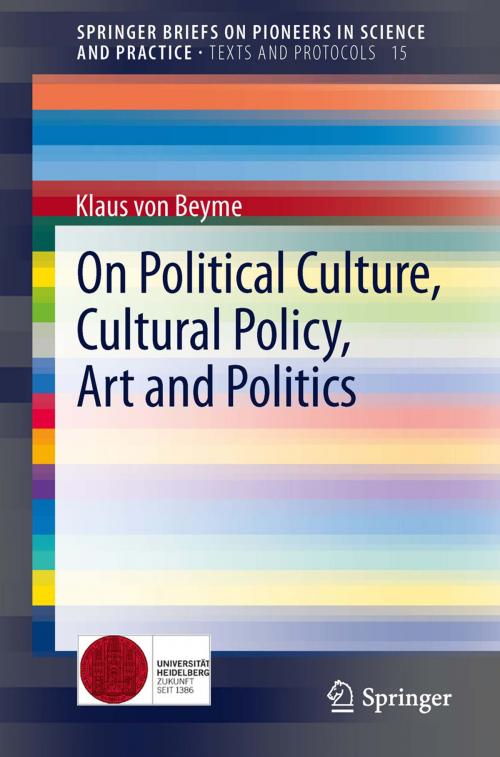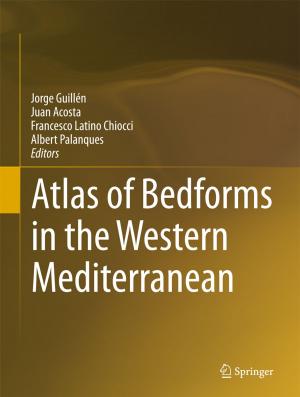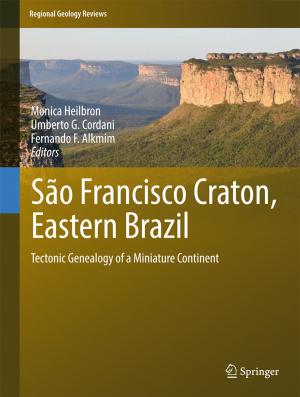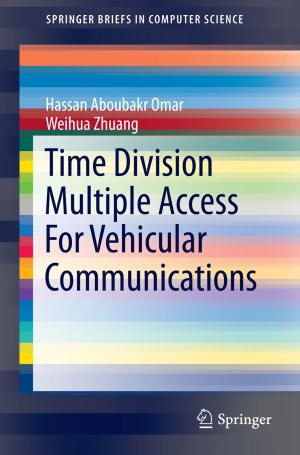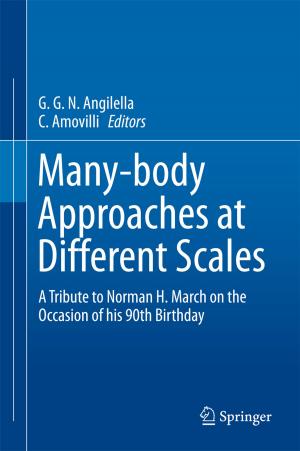On Political Culture, Cultural Policy, Art and Politics
Nonfiction, Reference & Language, Law, Environmental, Social & Cultural Studies, Political Science| Author: | Klaus Beyme | ISBN: | 9783319015590 |
| Publisher: | Springer International Publishing | Publication: | November 19, 2013 |
| Imprint: | Springer | Language: | English |
| Author: | Klaus Beyme |
| ISBN: | 9783319015590 |
| Publisher: | Springer International Publishing |
| Publication: | November 19, 2013 |
| Imprint: | Springer |
| Language: | English |
Klaus von Beyme is a distinguished German political scientist and recipient of the Mattei Dogan Award of Political Science (2012). In honour of his 80th birthday this book addresses political culture, cultural policy, art and politics. The first part on transformation theory analyses: “Historical Memories in Political Theories”, “Historical Memory in Nation-Building and the Building of Ethnic Subsystems”, “The Concept of Totalitarianism – A Reassessment After the Breakdown of Soviet Rule”, “Political Culture – A Concept from Ideological Refutation to Acceptance in the Soviet Social Sciences”, “Institutions and Political Culture in Post-Soviet Russia” and “Political and Economic Consolidation in Eastern Europe. Evidence from Empirical Data”. The second part on cultural policies addresses “Why is There No Political Science of the Arts?”, “Historical Memory and the Arts in the Era of the Avantgardes: Archaisme and Passéisme as a ‘passéisme of the future’”, and “Capital-building in Post-war Germany”.
Klaus von Beyme is a distinguished German political scientist and recipient of the Mattei Dogan Award of Political Science (2012). In honour of his 80th birthday this book addresses political culture, cultural policy, art and politics. The first part on transformation theory analyses: “Historical Memories in Political Theories”, “Historical Memory in Nation-Building and the Building of Ethnic Subsystems”, “The Concept of Totalitarianism – A Reassessment After the Breakdown of Soviet Rule”, “Political Culture – A Concept from Ideological Refutation to Acceptance in the Soviet Social Sciences”, “Institutions and Political Culture in Post-Soviet Russia” and “Political and Economic Consolidation in Eastern Europe. Evidence from Empirical Data”. The second part on cultural policies addresses “Why is There No Political Science of the Arts?”, “Historical Memory and the Arts in the Era of the Avantgardes: Archaisme and Passéisme as a ‘passéisme of the future’”, and “Capital-building in Post-war Germany”.
